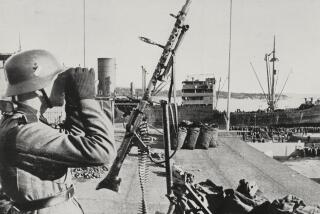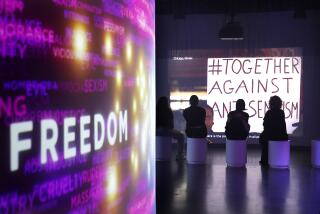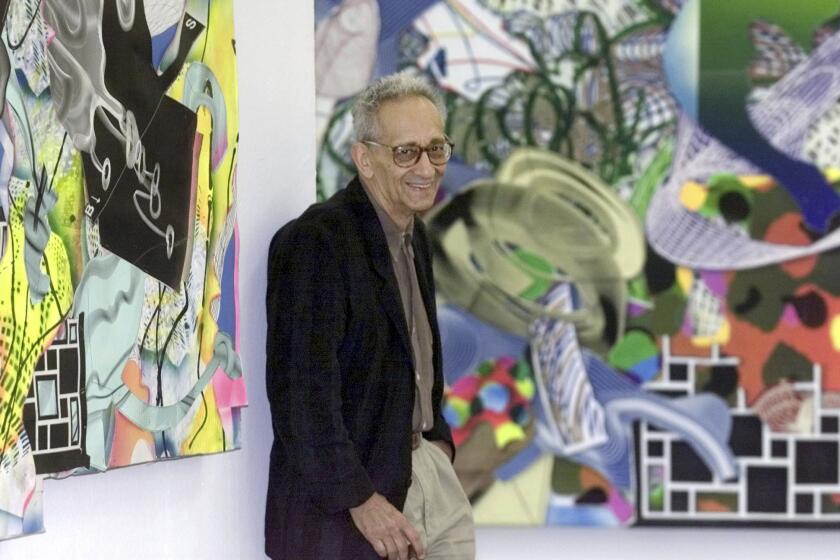Fear, hysteria and patriotism
Karl Greenfeld’s review of “Infamy” is dangerously wrong [“At Our Worst,” April 26]. According to him, the horrible Japanese concentration camps were “what happens when stupid men stumble into the fog of war”; they were “the acts of “mediocre men of bad intentions.” Seriously? Does that include [President] Franklin D. Roosevelt, [California Atty. Gen.] Earl Warren and [newspaper columnist] Walter Lippmann?
The real problem is a combination of fear and hysteria that can lead even the best and the brightest to do something — anything — to at least appear to be protecting the public. Even things that in the cold light of history look dumb to the point of being evil.
The only good that may come of this is that they are so reviled (quite properly) that their memory may deter the next group of leaders tempted to such an extreme. I am not optimistic as I read of President Obama ordering the killing — by mistake, of course — of innocent hostages of the dreaded bad guys, whomever they may be today.
Arthur O. Armstrong
Manhattan Beach
Many years ago as a student at Cal State Los Angeles, I referred to the internment camps as concentration camps in an Asian history class and was chided by the professor and some students. Fences with barbed wire on top. Guard towers in all four corners. Soldiers with loaded rifles in each tower, with the rifles pointed inward at the (mostly) American citizens. My definition of a concentration camp.
So, thank you, Richard Reeves, for “Infamy” and Karl Taro Greenfield for your review.
Suzanne Ledeboer
San Diego
::
This book review is excellent and tells what happened, but never when telling this story of this injustices done to these American Japanese does it mention that a big reason for this terrible deed was for the protection of those involved. Case in point: German Americans suffered some retaliation in different parts of the U.S. during World War II, especially Lutheran Germans. Whenever our homeland is attacked, we become so patriotic that retaliation is about all that comes to mind.
Now we have Guantanamo to try and explain to our children.
I recently took a friend to Poston, Ariz., the location of one of the concentration camps, to see the memorial. I have been there a number of times on hunting trips, and it always makes me wonder how much patriotism is too much.
Allen F. Dziuk
Carlsbad
The roots of Palestinian pain?
In regards to Nathan Deuel’s review of “Children of the Stone” by Sandy Tolan [“Power of Music in a Strife-Ridden Land,” April 26]: Nice story, but stop the music. A question is begged here: Should one blame an alcoholic’s addiction and its consequences on the pain he tries to drown? The substrate issue in this review is that the Palestinians drown themselves in their self-sorrow and self-pity for not succeeding in ridding themselves of Jews despite best efforts.
Their complaints are about the pain they feel when they get hurt by attempting violence and failing to succeed. No music will cure this addiction to self-pity. The Palestinians must collectively face up and recognize as a first step the true cause of their pain, which is their own refusal to accept the Jewish right of return and open Israeli offers to live together with them in peace in the land that also happens to be the Jewish homeland. Only then can there be peace.
Gary Dalin
Los Angeles
More to Read
The biggest entertainment stories
Get our big stories about Hollywood, film, television, music, arts, culture and more right in your inbox as soon as they publish.
You may occasionally receive promotional content from the Los Angeles Times.





